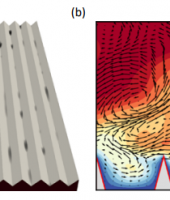Assessing the genetic contribution to successful ageing and Alzheimer’s disease risk
Establishing efficient prevention strategies for dementia and Alzheimer disease’s (AD) is a major health priority for the coming years. An important hurdle is that pathological processes leading to Alzheimer’s disease begin many years before clinical diagnosis, hence efficient prevention should be initiated very early. This requires identifying individuals in the general population who are at high risk of developing dementia and AD. Using next-generation sequencing (NGS) data of whole genomes, we will attempt to identify genetic variation that contributes to the risk of dementia and AD. This project will perform computationally intensive NGS analysis steps including alignment, quality control and variant calling. At the completion of this project, these results will allow further analysis assessing the contribution of genetic variation to dementia and AD
Area of science
Biomedical, Medical And Health Sciences
Systems used
Zeus
Applications used
BWA, Bowtie2, sambamba, Picard, samtools, Genome Analysis Toolkit (GATK)
Partner Institution: Murdoch University |
Project Code:
The Challenge
To find out the computational requirement of analysing 619 whole genome sequencing samples
The Solution
A pipeline was developed to analyse 10 samples. The pipeline was run for each sample, with each step timed. The average computation time was calculated for each sample, then extrapolated for 619 samples
The Outcome
We bench marked six bioinformatics software tools. Approximate computation time was calculated for each tool. This led to a successful Pawsey merit allocation in 2019





